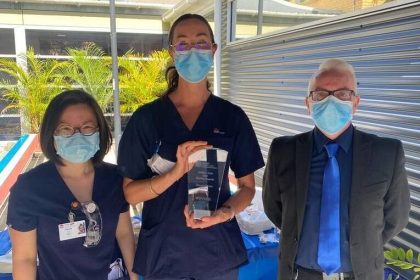
Judy Thomas is the newly appointed Cardiac & Chronic Care Program Manager for NNSWLHD. Judy brings to the role, a wealth of experience and knowledge in the area of Chronic Care and Cardiac Services. When asked to reflect on the year that was 2021, Judy states “Although the Cardiac & CDM staff have faced many challenges over the past year, they have maintain services and provided care of a high standard.”
“As we transition into 2022 we will be looking at how we can provide the same standard of care through returning to face to face groups and implementing telehealth as a support mechanism. We will also review the newly developed single point state-wide data collection program by the Heart Foundation for cardiac services with a goal to transition current practice to a more refined approach” said Judy.
Cardiac Services
Highlights of 2021
Funding was provided by IC for the following training for staff working in the field of cardiac services;
- 5-day Cardiac Rehabilitation training provided online by the Australian Cardiac Research Centre, Victoria – 5 staff attended.
- QLD Health – Heart Failure (Hospital to Home) 2-day webinar provided at Tweed, Lismore & Maclean sites.
Challenges of 2021
COVID interruptions have created long wait lists for access to services. Cardiac staff were faced with the cessation of face to face rehabilitation groups for cardiac & heart failure patients. This forced them to investigate alternative models and proved difficult without all sites having access to telehealth equipment to offer virtual groups. IC funding enhancements for equipment will improve accessibility to virtual care in 2022.
Keeping People Healthy Category Winner: Rebecca Tate – Keeping People Healthy; Tele-healthy hearts sprinkling smiles on everyone. Watch the NNSWLHD Quality Awards on You Tube
 |
 |
Chronic Disease Management
Highlights of 2021
MoH funded The Chronic Disease Support Program, health change management training, delivered by the Benchmarque Group, to all Chronic Disease Management (CDM), Integrated Aboriginal Chronic Care (IACC) and Chronic Care for Aboriginal People (CCAP) program staff.
Collaborative work with the Planned Care for Better Health (PCBH) Project Officer to review current CDM workflow and the introduction of the Integrated Care Risk of Hospitalisation (RoH) algorithm to the way CDM patients are identified for CDM eligibility.
Challenges of 2021
COVID priorities also created pressure, with CDM staff deployed to assist with COVID Care in the Community. This is ongoing and recruitment processes are in place to allow CDM staff to return to normal roles in 2022.

